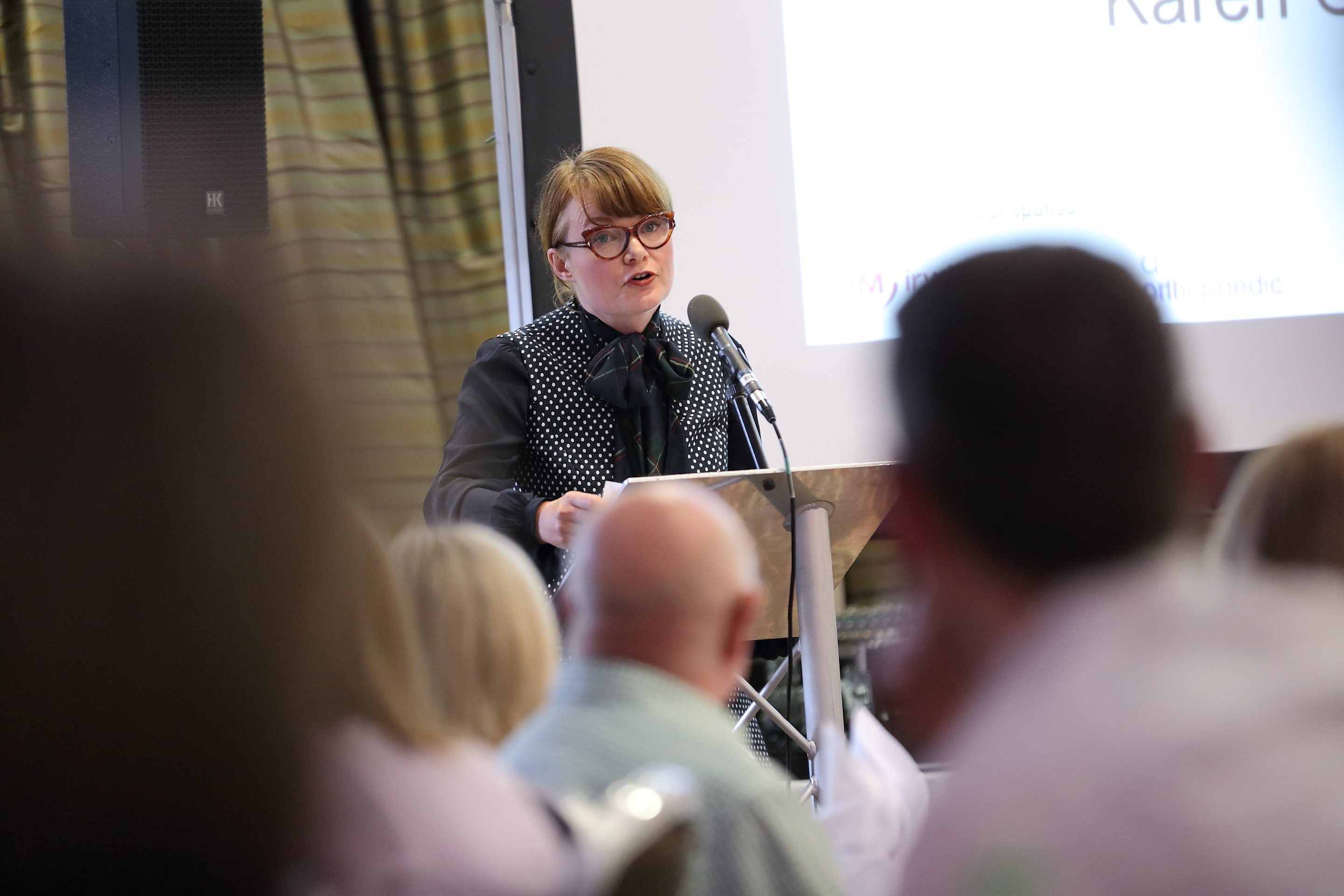Blog
See Beyond Stroke - the impact side of the film
Many of you know that alongside all the festival and cinema screenings we have been doing, we also strive to get the film to all sorts of harder-to-reach audiences who we feel it would benefit. Sometimes it's hard work but it has also been some of the most rewarding work I have done with the film. I grew up in a small town with no cinema, so I know what it's like to be on the outside looking in - so we have been really motivated to get the film to carers, health care workers, social workers and the like. Over 2018/19 we are working to get a really exciting project with the Scottish Prison Service's Learning Team off the ground, where the film will be used as a catalyst for discussion and reflection towards developing emotional literacy and related life skills.
In fact, I have been writing a Blog series on this very subject for the wonderful Scottish Documentary Institute website - you can read them here.
Here and now though I would like to point you to the two reports produced about all our Bertha BRITDOC Connect Fund outreach and impact work, with our wonderful team of Sally Hodgson and Jen Skinner.
Now I know "Reports" doesn't sound gripping, but trust me, these are!
Look at some of the testimonials from carers we worked with:
‘I now have a better understanding of how the family members felt after Ann experienced the stroke and how big a change it was for them’
‘Made me feel important in my role as a carer and how much we are valued, I am very privileged.’
The Two-Page Executive Summary is here (PDF)
The Full Report is here (PDF)
If you are in health and social care training, or are a film-maker interested in distribution; if you're an impact producer or you work for a NGO or charity and are thinking of working with film, you will find some very interesting reading here - I promise. Share and pass around, please.
Posted 23rd Jan in news
For Ian, on Father's Day
Here is an extract remembering my dad, from a longer memoir I've been working on lately, inspired by making The Closer We Get:
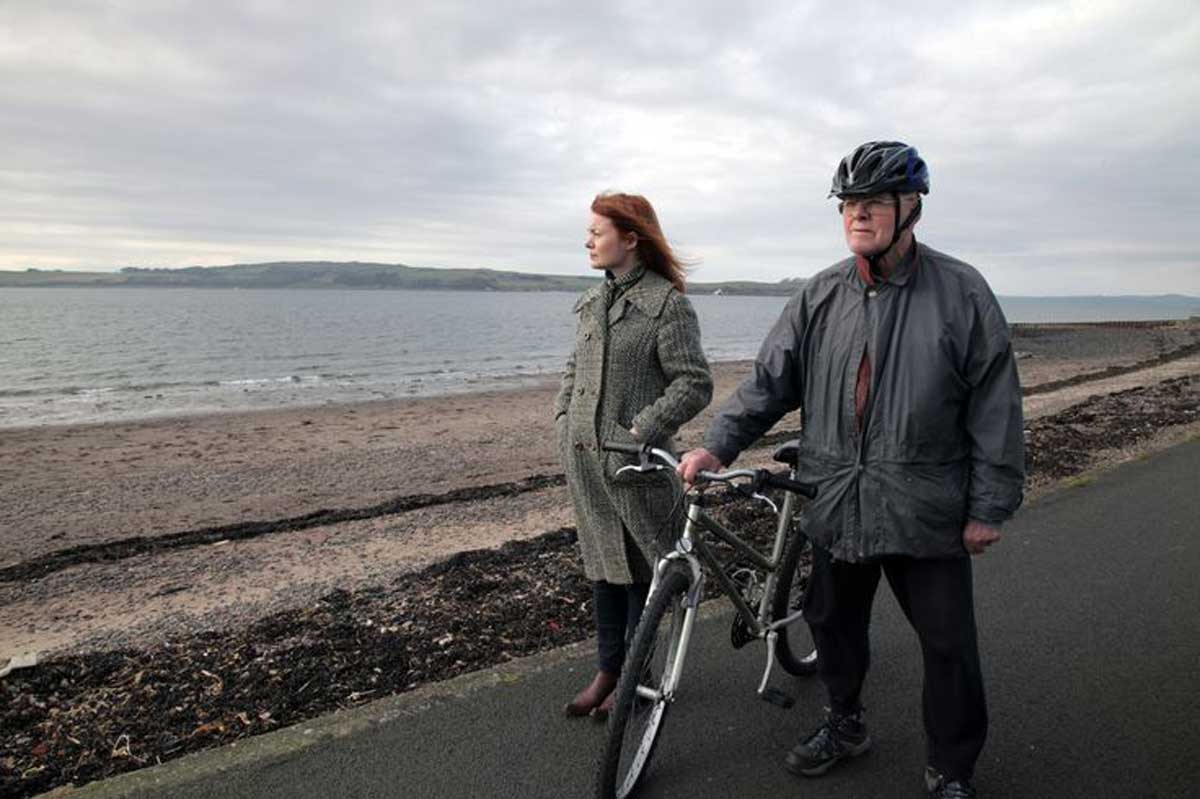
Dad trained hard most evenings, changing into shorts and removing his dental plate before ploughing up and down the Largs seafront promenade that connected our house to the town. After an hour or so of grimacing with effort against the onshore wind, his return home would be announced by the front door swinging open heavily. This was one of the few occasions he used the front door, in fact. A gust of wind from the seashore seemed to accompany him, and - as ever with Dad – it was never a quiet entrance. He’d drop down onto to the hall carpet and summon one of us kids out from our homework to sit on his feet as he finished with a few dozen sit-ups. He would tease us, leering over us sweatily, and we laughed hysterically at his toothless grin, feigning to wince at his smell but secretly entranced by his energy, his magnetism, his selfish determination.
He’d then wash for dinner in the downstairs bathroom, using the landing in
front of it to dry himself off – he claimed the bathroom was too small for a
man used to rugby changing rooms.
As this landing was directly opposite the front door, it was all too
easy to return home and chance upon him ‘in
the skuds’ as nakedness was known in our family – but he was never
embarrassed, he just larked about making the towel into a bullfighting cape or
a sheik’s headdress until we laughed along with him too.
Dad’s primary parenting tool was
humour, in fact, with Mum covering everything else. Unlike most of Mum’s
skills, laughter could be hastily deployed – and anywhere. It didn’t need
forward-planning, in fact it hated routine. It could not happen without an
adoring audience, and Dad’s scarcity at home certainly guaranteed one in his
four kids.
I had a prodigious talent for sulking, it was my go-to response to most circumstances that didn’t go my way. And being a third child of four, most things didn’t go my way. When the family had to spend a wet day hiking, I would sulk. When it was banana bread for tea, I would sulk. When Mum bought me a cheapo anorak without asking my opninion first, I would sulk. I orchestrated these sulks with increasing strategy as I got older. It was dangerously easy for nobody to notice you were sulking in our big house, and that was obviously a total waste of time and effort. So I soon learnt it was important to choose the location of the sulk well – clearly it couldn’t take place in the upstairs rooms – such as our bedrooms – as no one went up there unless it was to sleep, and besides, there was no central heating and there was a limit to how much I really wanted to endure for my art. The kitchen rarely worked either, as it was Mum who usually caused the sulk and she was invariably in there – the flouncing out of the room that was the prelude to the sulk was a vital dramatic effect, and you could hardly follow it by returning unannounced just to sit and scowl in the corner. The playroom was an enjoyable place to carry out a sulk, as there were limitless, fun things to do in there meaning I only had to put the sulk back ‘on’ briefly when someone came through the door. The downside of that room was that in fact my parents didn’t often come in there – it was largely and gloriously out of bounds for them – and as it was Mum (and only occasionally Dad) that I wanted to punish with the sulk, there was a real risk that they might never ever find out about the brilliant sulk I had conducted in there all afternoon.If Dad was around, he made it his personal mission to rid me of my precious sulk, however it had arisen. If Mum mentioned my condition to him privately, he would search the house high and low until I was found, perhaps pretending to read a book in the lounge, or if the weather was good, mooching around in the garden, picking up ladybirds or confiding all to the rabbit in her hutch. Dad wouldn’t call out to me, he’d sneak up and then would get down onto his haunches right in front of me. He’d bob his head back and forth but I would not look up, of course. Then came an onslaught of interpretations of the chain of events that – as far as he knew – had caused the telling off from Mum that had spawned the sulk.
“A little bird tells me that a certain person fed her teatime sausage to the dog, and thought she’d get away with this heinous crime....”
“Soooo - you and both of your brothers were in the garden playing football, and somehow your sister Alison pushed herself down the stairs – have I got that right? Well, I guess there’s no need to check the CCTV footage in that case, as you’re so clearly telling the truth”
“What will Mrs Dorman think when she finds out that her star pupil has been sent away to her Auntie Judith’s in Taynuilt, for being such a naughty girl? Well, I expect you might get a Christmas card if you’re lucky enough to be remembered by her and the rest of the class, but Judith only has room for you in the garden shed, you know.”
Each sentence was delivered with a painstakingly dry comic inflection. It
was very hard indeed to hold my ground and soon I was unable to resist glancing
up at Dad in front of me - fatal. Within a few seconds I was giggling along
with him despite my strenuous efforts to remain po-faced.
Triumph would sweep across his face, and standing upright again, he’d say, gently,” C’mon bumblebot” taking my hand and leading me back indoors.
Posted 18th Jun in reflections
Karen speaks to 2017 Stroke Assembly North
I was recently honoured to be one of three speakers at the opening dinner of the 2017 Stroke Assembly North. Above is a picture of me before the MakeMayPurple wigs came out :-)
This Stroke Association event focuses less on healthcare professional than the Stroke Forum (which I also attended, in November '16) - and more on stroke survivors, their carers, and their support networks. The very wonderful Stroke Association chief exec. Juliet Bouverie and others addressed the room on several occasions, highlighting recent government stalling on addressing stroke provision, demanding a new stroke strategy for the UK (we have 100,000 strokes a year - and we think that's going to sort itself out do we?!), but the most attention was rightly given to first-hand experiences of stroke in its many forms.
I had a very tough few acts to follow with my presentation - former financial planner and all round over achiever (he'd agree I am sure!) Nick Cann had everyone in tears when he concluded his moving speech with a clip of him singing. Nick has aphasia and so struggles to speak and communicate, yet his outlook on life was incredibly positive and he does so much work to raise awareness of stroke. I showed a few minutes of one of our special 'extra' scenes - an extended version of what is in the film - of Mum completing the 'Six Million Women Study with my help. Everyone in the room laughed and cried - exactly as they should do! And then I outlined the outreach work we have been doing and my motivation for it - especially now that I can say - sadly - that both of my parents lives were devastated by stroke.
The next day I manned a stall with examples of our See Beyond Stroke resources and DVDs of the film for sale - I met so many incredible people, but I especially wanted to highlight the Aphasia UK network. My late Dad Ian's stroke last year gave him severe aphasia, and for the first time I witnessed the effects of this little-understood condition on the mental wellbeing of a stroke survivor. It was so different from my Mum's stroke, which had mercifully left her speech intact, and so to meet people who had lived with aphasia for decades was truly inspiring.
From AphasiaUK Leeds branch Mark Chappell hails. Mark works to raise awareness of the challenges of living with aphasia (which he suffers from) and he produces some brilliant videos - he filmed me for this one below which covers lots of the Assembly's activities.
I think you'll enjoy it!
Many thanks to Anne Abbott and all her Stroke Association colleagues for welcoming us to this event.
Posted 15th Jun in news
Ian W Guthrie (1935 - 2016): Obituary
We knew some of you will be interested to read this recent obituary (originally published in the Herald Scotland) about one of our main film characters, Ian, who sadly passed away recently.
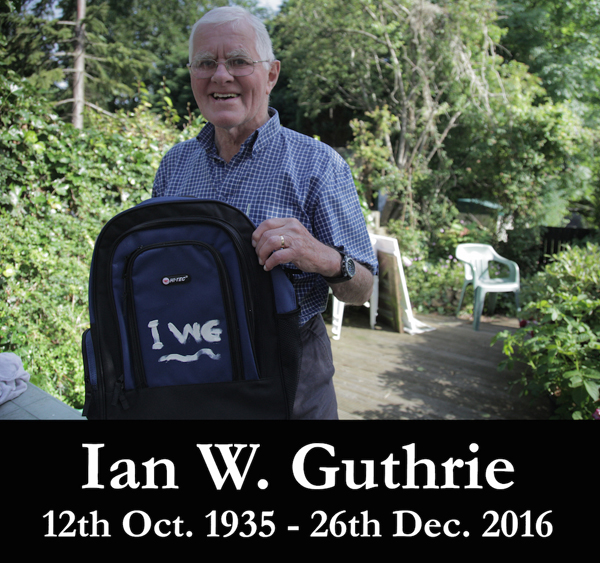
The death of Ian Guthrie has robbed his family and friends of untold colour and humour, for his was a powerful presence that enriched any occasion, whether a social gathering to mark the birthday of a grandchild or a trip to the pub for a few steadiers and a diatribe about the latest instance of political incompetence, corporate malpractice or sporting controversy.
But Ian would not approve of our indulging in prolonged sadness at his passing. He was an unsentimental man who towards the end of his life gave little impression of harbouring regrets or the sense that his had not been a life lived to the fullest.
Ian William Guthrie was born in Falkirk on October 12, 1935, to Bill, a civil engineer, and Alice, a schoolteacher. He and his younger brother Derek led a nomadic childhood due to their father’s reserved occupation as a civil engineer, spending time during the Second World War in Northern Ireland, where he witnessed first hand the Belfast Blitz of 1941, before moving to Edinburgh and then Glasgow.
Ian was educated mainly at Glasgow Academy where he discovered a passion for rugby which was not only to stay with him until the end of his life but also strip him of his two front teeth. Many years later he would recall having a young Donald Dewar, Scotland’s inaugural first minister, as his “fag” or personal servant, though his assessment of Dewar’s competence as both a politician and a lackey does not bear repeating here.
After leaving school Ian undertook national service as a submariner with the Royal Navy, serving principally on HMS Andrew, an experience he enjoyed to such an extent that he stayed on beyond the mandatory 18 months. As recently as April 2016 Ian fell into hysterics as he recalled an episode involving the overconsumption of beer on shore leave and the consequences within the cramped confines of the submarine.
The next chapter for Ian was an undergraduate degree at Cambridge University’s Emmanuel College. By Ian’s own admission his focus was somewhat lacking on the educational side of his time at university but on the plus side his social and sporting skills flourished. Ian took to rowing as effortlessly as he had to rugby, holding the uppermost position of stroke, and more than 20 years later would thrash the rowing machine in the family home as he got into shape for his latest challenge.
After Cambridge and as the 1950s gave way to the 60s Ian returned to Glasgow, where he began training to become a chartered accountant with Peat Marwick. It was at this time that he was introduced to a young nurse from the Ayrshire coast, Ann Kirkland. Frustratingly, Ann was due to emigrate to Canada with her friend and fellow nurse Jean Dyer, the aim being to advance their careers and have new experiences. Despite Ian’s attempts to dissuade her, Ann duly departed Scotland but was soon doubting her appetite for the life she had dreamed of. Following the exchange of a series of transatlantic love letters the couple were reunited in Scotland and in 1963 were married in Overton Church in West Kilbride.
As part of Ian’s training the couple moved to Bad Soden outside Frankfurt in West Germany, where they made lifelong friends and took full advantage of the proximity to excellent skiing runs. In 1966 they welcomed into the world their first child, Mark, and less than two years later they had a daughter, Alison.
With Ian’s foreign posting complete the family moved back to Scotland in 1969 and chose as their base the town of Largs, which Ian and Ann saw as the ideal place to bring up their children as well as within commuting distance of Glasgow for Ian’s work. A second daughter, Karen, was born in 1970 and another son, Sean, arrived in 1971.
For the ensuing decade or so Ian focused on what he deemed the main priority of a father, providing for his family, while remaining attuned to the importance of keeping active through playing rugby for his beloved Glasgow Accies, golf and most significantly running, culminating in his completion of the Glasgow marathon in 1982 at the age of 47. He would often engage his children as anchors for his feet while he performed sit-ups after an early-morning or evening circuit of the streets and promenade of Largs, the false teeth waiting to be reinserted after a cleansing shower. In line with Ian’s straightforward tastes (black coffee, liquorice allsorts, mince and potatoes, oatcakes) his reward after a Saturday-morning run would be fresh grapefruit, a couple of boiled eggs and a slice or two of toast.
Alongside such virtues as self-reliance and perseverance, Ian saw it as his duty to instil in his children an appetite for sport and outdoor activity. In life, as on the pitch or track, a few scars and sprains were inevitable and it made sense to get used to the fact. His success in this regard was nevertheless slow to manifest itself on occasion. Of his four children with Ann only Sean succumbed to his father’s efforts to introduce them to the appeal of golf. Likewise, although Ian would blithely lead his brood up hills while on holiday in Scotland, the Lake District and Yorkshire, promising the reward of half a Polo mint to those who made the summit, it would be some time before any of his children rediscovered a latent interest in hillwalking.
That said, Ian’s children have all taken to sport and making the most of all that the outdoors has to offer, so their father’s persistence paid off in the end.
In the early 1980s, a period in which he served as secretary of the Largs Viking Festival, Ian became disenchanted with accountancy and worked for a spell in life insurance, but the offer of a position as a financial director of a shipping firm in the tiny east African country of Djibouti was too good to pass up, especially with the looming prospect of funding further education for four children.
In 1983 Ian left for Africa and for the next decade returned twice a year, finding his sons and daughters developing as children do. Mark and Sean went to Glasgow University, Alison enrolled at St Andrews University and Karen went to Edinburgh College of Art. In the days before student loans Ian’s salary played a crucial part in seeing his children through their studies.
It was upon Ian’s return to Largs from Djibouti that he revealed to Ann and his children that during his time in Africa he had fallen in love with an Ethiopian woman called Tadalech and they had a son, then aged four, called Campbell, who lived with his mother in the Ethiopian capital of Addis Ababa. Ian also insisted that he wished to remain Ann’s husband while planning for a future for his youngest boy in Scotland and ensuring Tadalech and her extended family were financially secure.
During the years that followed – in which Ian and Ann separated and eventually divorced but remained interdependent, and in which Ian strived to establish a sound upbringing for Campbell – Ian never shirked from the complexities to which his choices had led. His decisions were not always universally popular but he stood by them and did what he thought was best.
Around this time Ian and Ann became grandparents, first to Alison’s daughter Zoë then to Alison and Joe’s children Emma, Mia, Adam and Lila. Ann was known to them as Nonna while Ian was Papa, a benevolent figure whose idiosyncratic generosity revealed itself in the form of unpredictable birthday gifts and donations of loose change for the buying of sweets.
Ian never expressed a hankering for retirement and continued to work well into his seventies, looking after the accounts for a haulage firm in east London. Not that he would enjoy the fruits of his labours himself, making the weekly return trip south from Scotland by the cheapest means possible, i.e. the night bus, aided and abetted by a couple of steadiers and a carefully filled hip flask.
When Ann became severely disabled following a stroke in 2008, Ian in time assumed a central role in the elaborate system of care she required in her home in Largs, as documented by Karen in her film The Closer We Get.
Ian was a pivotal presence towards the end of Ann’s life, elevating her mood while also ensuring she was comfortable in between visits from her carers.
During this time Ian began accompanying the Largs Rangers Supporters Club as the Ibrox side embarked on the process of rebuilding after having been demoted to the lower leagues as punishment for entering liquidation. Earning himself the nickname The General due to being the most senior member of the cadre, Ian found relief from his caring responsibilities through travelling to many of Scotland’s less august football venues to watch Rangers climb through the leagues, though his travels were not without incident. Indeed, having become somewhat over-refreshed he was once left behind by the club bus in Cumbernauld after an away game against Clyde and only made it back to Largs thanks to his sister-in-law Judith Duffield pulling significant local strings.
Having visited Ethiopia regularly since coming back to live in Scotland, Ian returned in 2012 and fulfilled a long-held promise to marry Tadalech.
Following Ann’s death Ian moved into sheltered accommodation a few hundred yards from the home of Alison, Joe and their children in Govan. Ian became a de facto member of the household and drew fathomless pleasure from gently winding up the younger children and generally geeing everybody along with endless bon mots and fantastical stories, such as his having been a Harley Street doctor until he was struck off, or having taught Rudolph Nureyev everything he knew. Ian understood life, and the fact you shouldn’t take it all that seriously.
He also took full advantage of his return to the city in which he had studied and worked, journeying into the city centre on a weekly basis for a few steadiers in the Press Bar with former colleagues of his son Sean, now a journalist with The Herald. He enjoyed observing if not always approving of the changes that had taken place in the city since he was a boy as well as paying regular visits to Govan library.
Ian’s health began to falter last June when he was diagnosed with jaundice. He recovered but then suffered a couple of strokes which stole from him his excellent verbal dexterity, and his frustration was impossible to overlook. Without conversation, without humour, his quality of life was much diminished.
Each of us will have our own particular memories of Ian, and we should hold them close to our hearts. Whether hectoring the Scotland rugby team on TV from his armchair, lapping up even the briefest spells of sunshine wearing his preferred trouser style of tailored shorts or preparing brandy butter at Christmas, Ian Guthrie was a force of nature.
He will be profoundly missed.
Ian is survived by his wife Tadalech, children Mark, Alison, Karen, Sean and Campbell, and grandchildren Zoë, Emma, Mia, Adam and Lila.
Posted 15th Feb in reflections
China - the screening, the army, the dumplings....
Very belatedly I have finished a Blog post written during the recent and entirely fabulous iDocs trip to Beijing and beyond - my first trip to China and the film's too - so do take a look at that here if you fancy it.
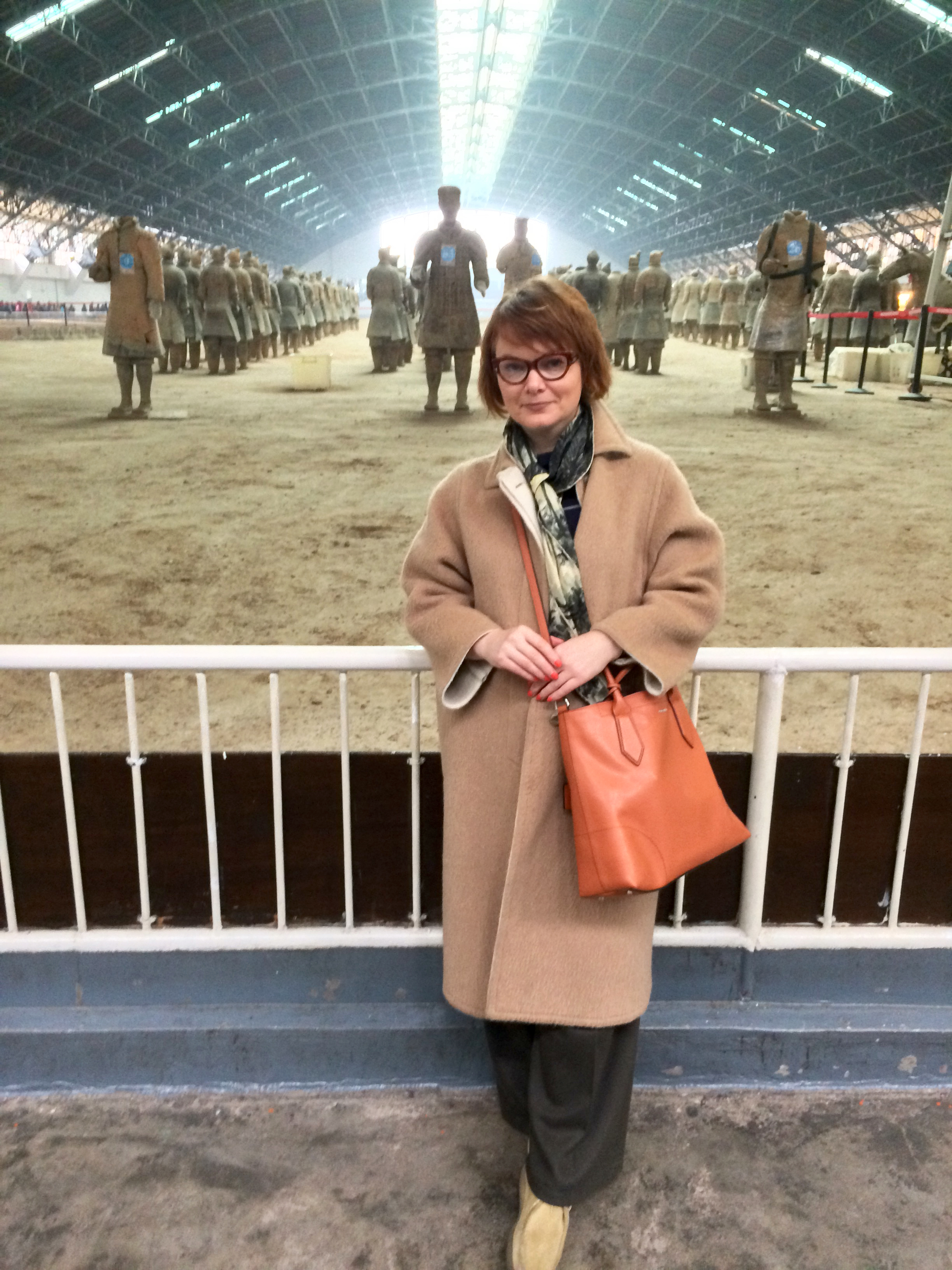
The obligatory terraselfie
Posted 16th Jan in reflections
Ae Fond Kiss & Then We Part
We're very sad to announce the passing of one of our stars, Karen's father, Ian W Guthrie.
Ian - like Karen's mother Ann - had suffered a stroke, but in the months since, his health had deteriorated. Ian was with his family when he died on Boxing Day, at Glasgow's Queen Elizabeth University Hospital.
You can read a short appreciation here by Karen, and we will post a longer eulogy here in due course.
Karen and her family thank everyone for their condolences, and hope you will continue to enjoy, share and remember Ian through The Closer We Get, a legacy of which - to the surprise of many who didn't know him too well - he was justly proud.
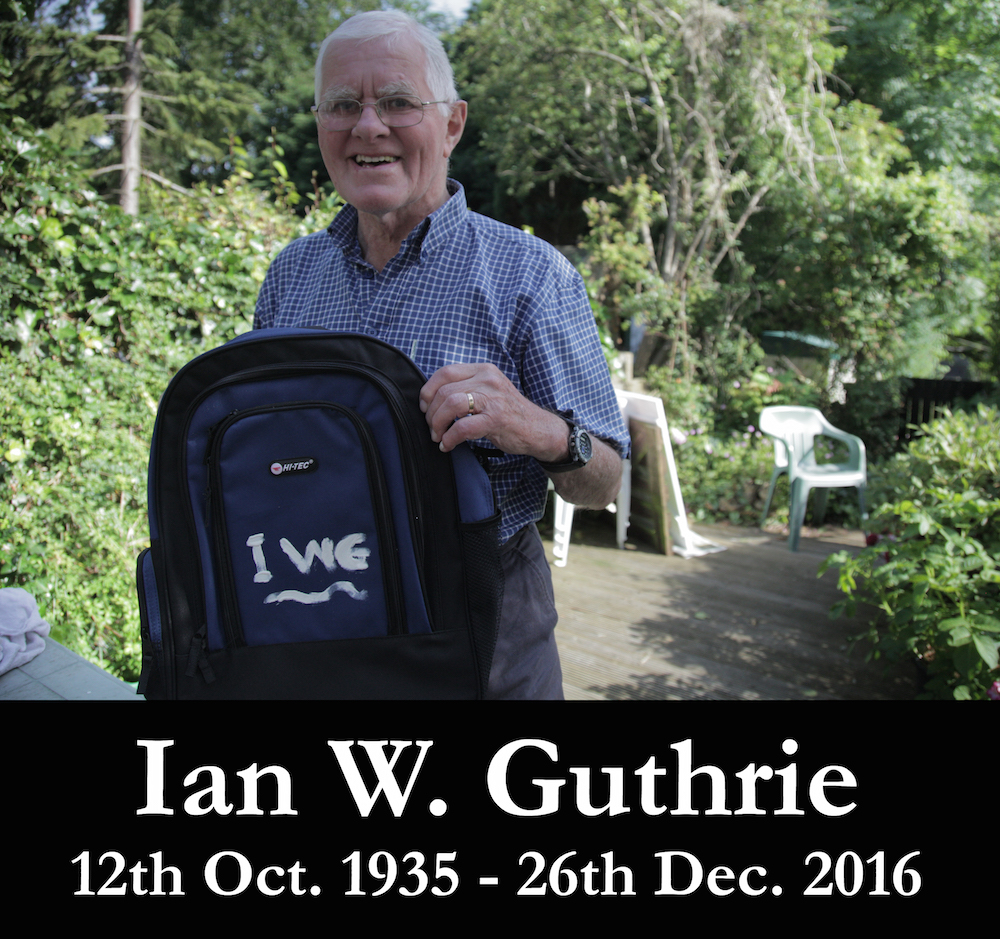
Posted 30th Dec in news
China premiere - tick!
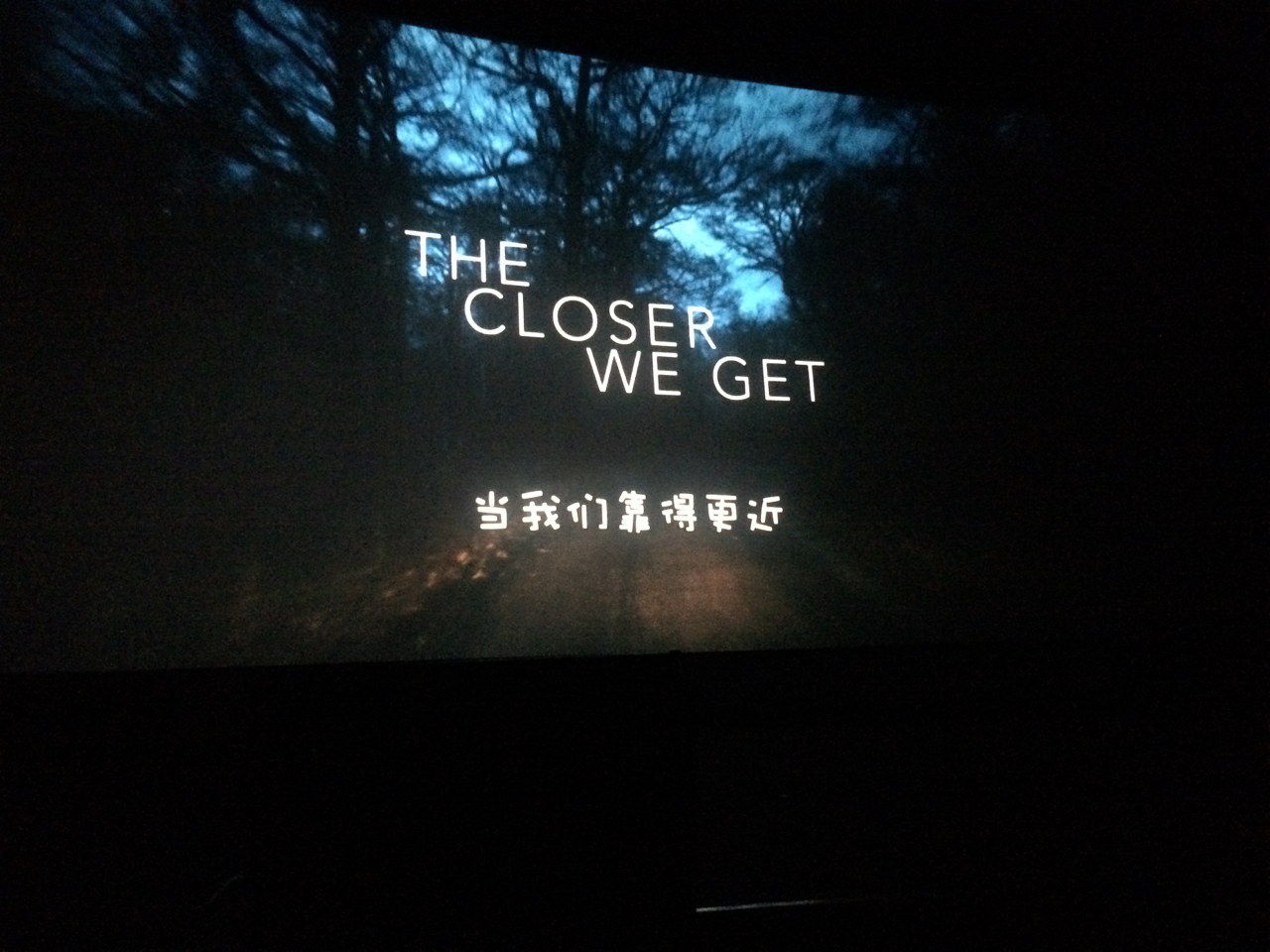
More than eighteen months since our Hot Docs premiere in Canada, I find myself at China's leading film school, Beijing Film Academy, where the brilliant Cherelle Zheng has brought a global selection of docs to an avid Chinese audience of about 300. It's a huge honour to be hosted here (and thanks to the British Council for their support) and to bring the film to, and I'm relieved that the Chinese audience laughs and cries at all the same places as every other audience - a testament to Cherelle's brilliant Mandarin subtitling.
The biggest guffaws come for my sister Alison, for Dad's '50 years of marital hell' comment, Mum's health questionnaire and - wonderfully - when the ginormous size of Jack the cat becomes apparent in one scene. The questions and comments after are many and insightful, and it's very moving to feel that we are all so connected by our universal emotions about family in all its light and shade.
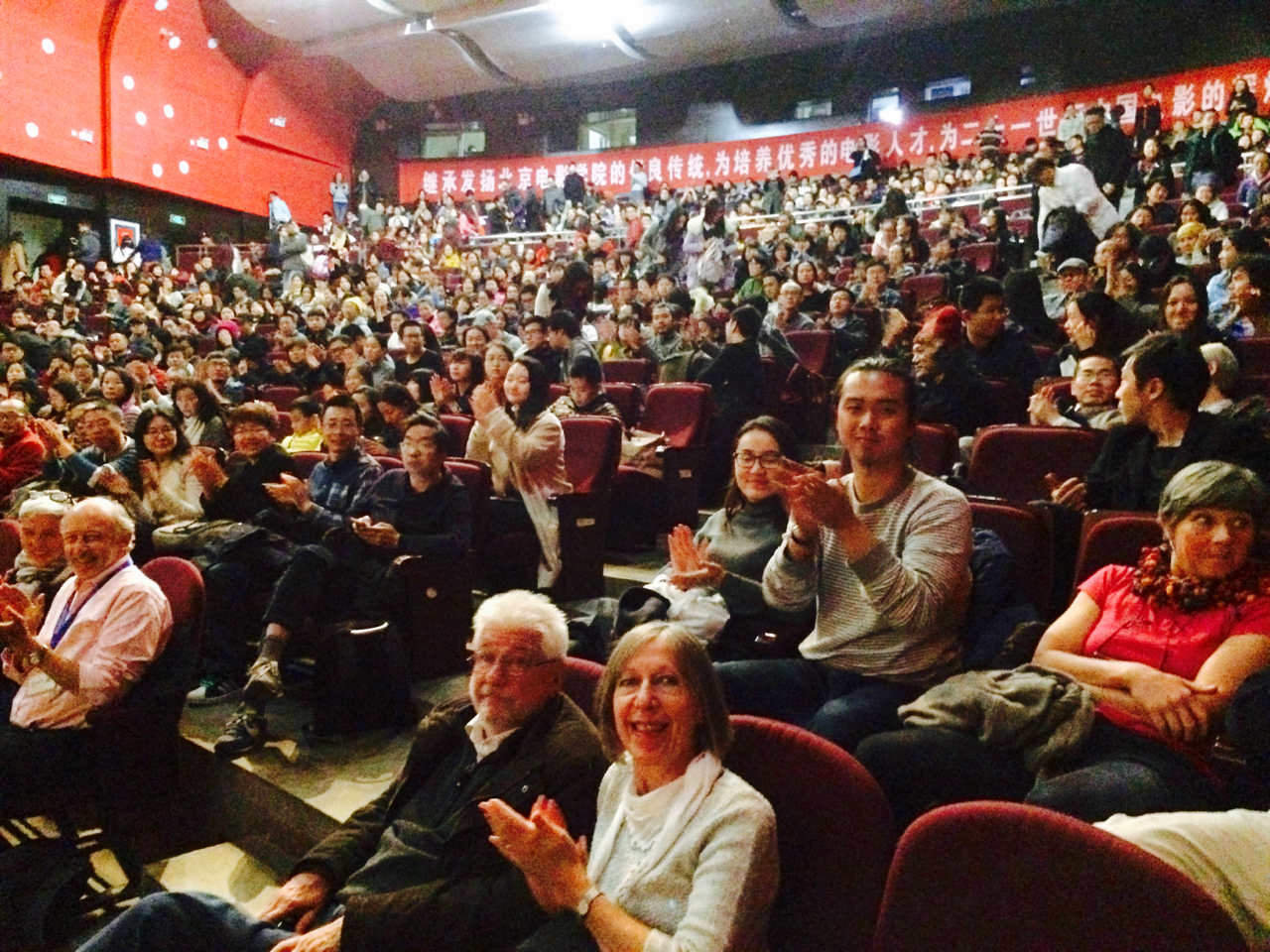
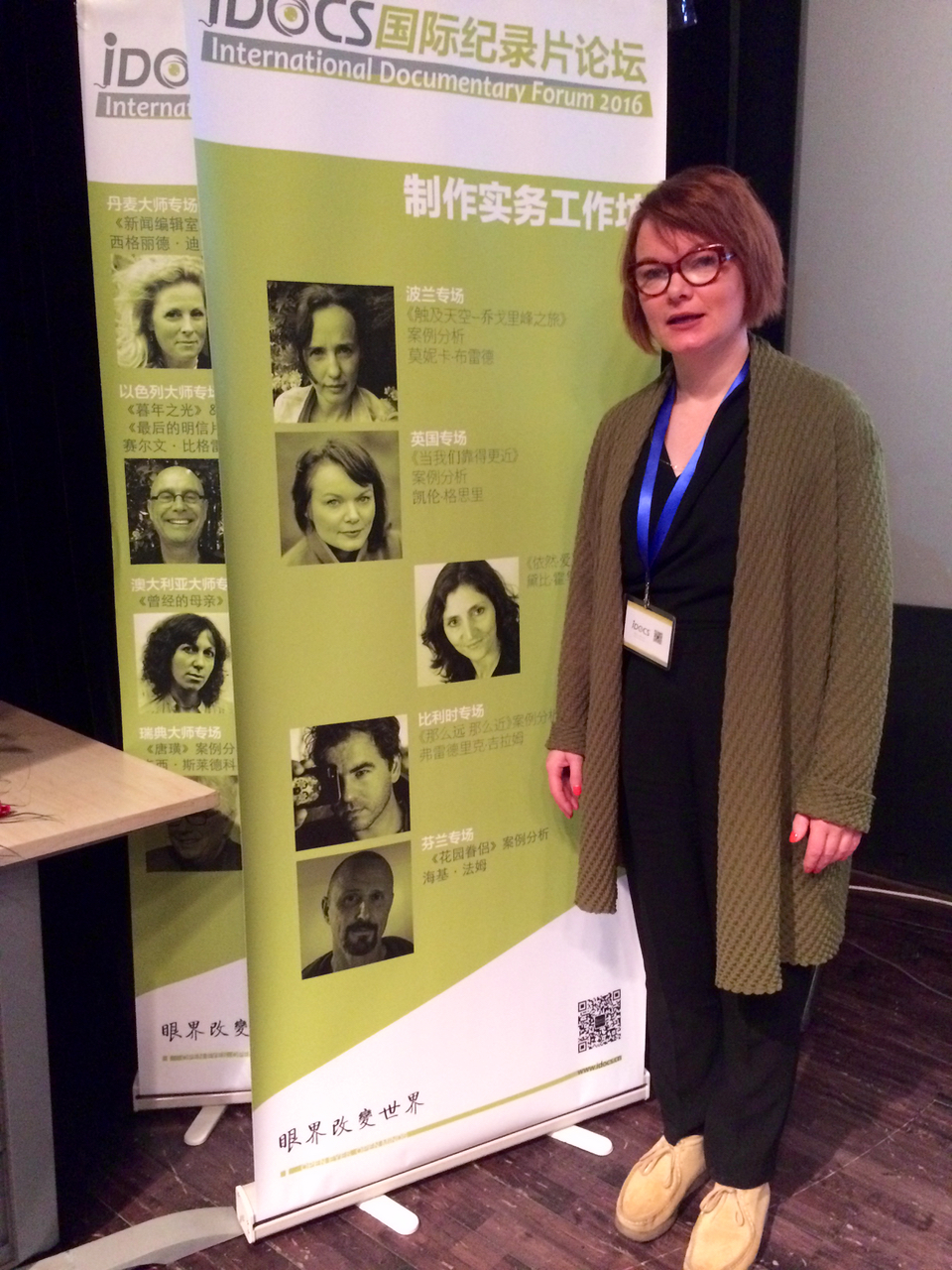

Posted 17th Nov in news
At least they all clapped when I said 'Ni hao' from the stage
To top off an amazing year with the film, I've now made it to Beijing in China for iDOCS, which is an amazing festival lead by the tireless Cherelle Zheng, that brings leading world documentaries to a Chinese audience, based at Beijing Film Academy.
As you can tell from the picture, some of Beijing Film Academy are less excited by this than I am. But to be fair, we were all 'watching' the Opening Ceremony here, and the Israeli Ambassador wasn't even wearing a tie for the occasion.
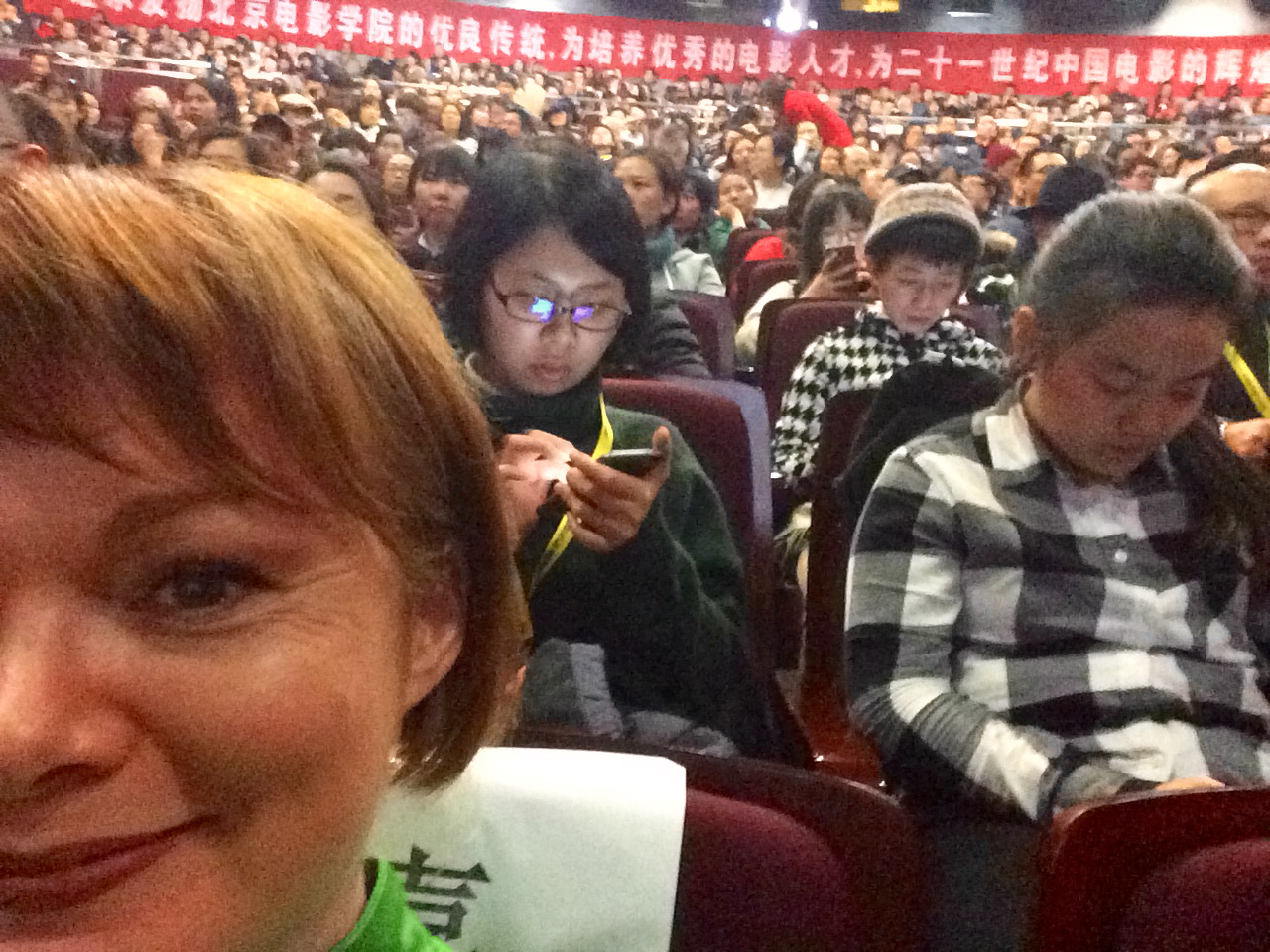
There's an exciting slash frustrating Russian roulette with iPhone / Mac connectivity at all times here, which will make uploading this Post a miracle. An occasional window opens up when you're in a cafe, when for 90 seconds you can flutter onto Twitter or Instagram. I'm no social media addict but it's a shame not to be sharing all the fantastic pictures I'm gathering. But do check in to the usual channels (@TheCloserWeGet on Twitter and Facebook, and 'somewhere.org.uk' on Instagram) occasionally or come back here to stay updated on Chinese dogs, dishes and diversions of all kinds.
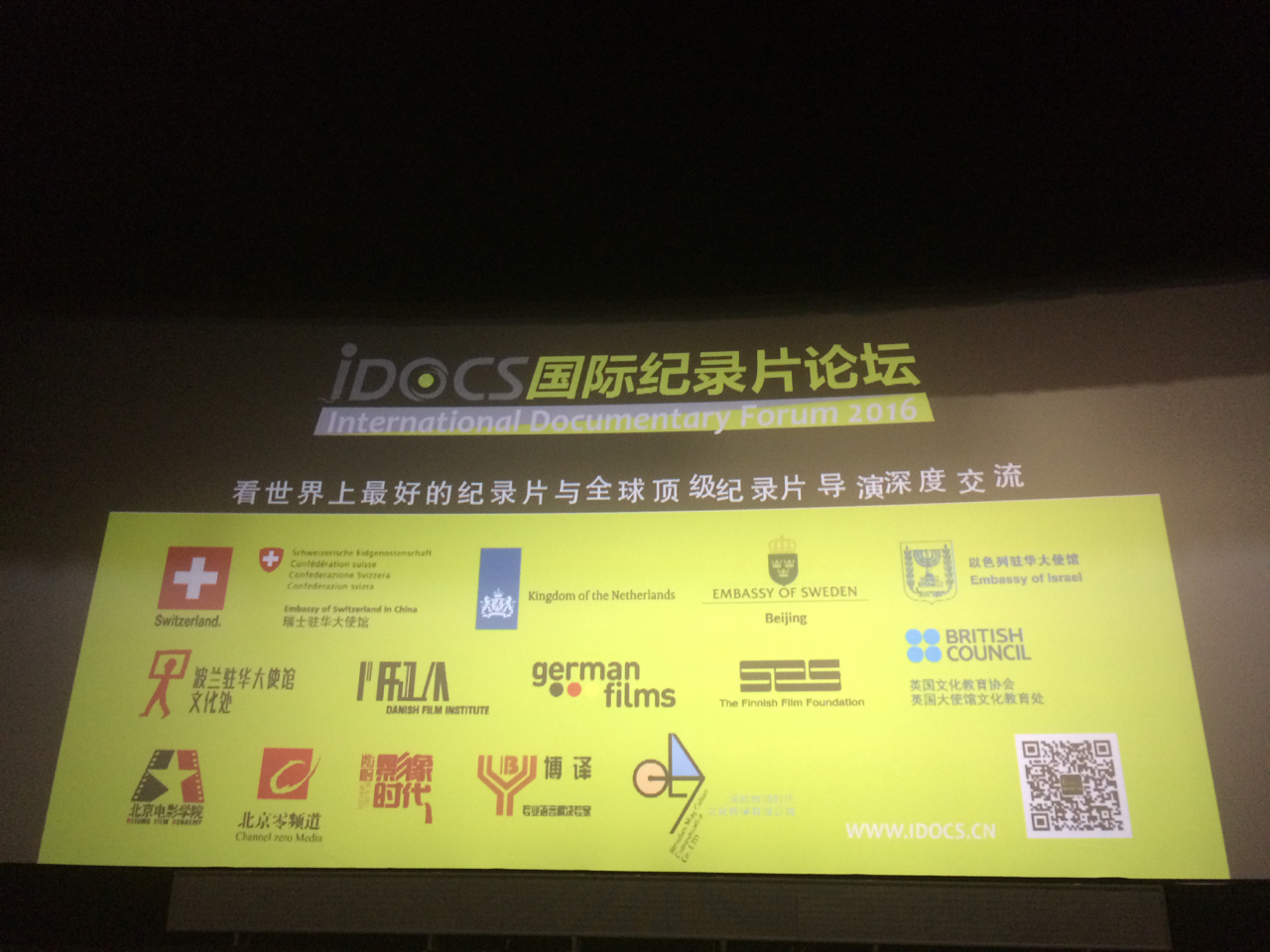
Our actual premiere is on Monday 14th with my 'Masterclass' on the 16th. In between I am hiking the Great Wall. (Ok, not all of it, obvs). Afterwards I am spending a week hurtling around other parts of China.
Here are some other rather interesting things spotted today whilst about the city.

Posted 12th Nov in news
Two weeks, two awards!
A bountiful autumn so far for us:
Karen has recently been to two festivals with the film, picking up prizes at both!
In the Eastern Russian city of Perm, the prestigious Flahertiana International Documentary Film Festival hosted two screenings of The Closer We Get, which was In Competition and was awarded a Special Jury Mention. The jury was lead by the brilliant US director Doug Block, with whom Karen also did an impromptu masterclass on personal film making (pictured). During the same festival, Karen travelled to Gubakha, a town in the Urals, to screen to 40 high school pupils who loved the film so much they asked for autographs afterwards !
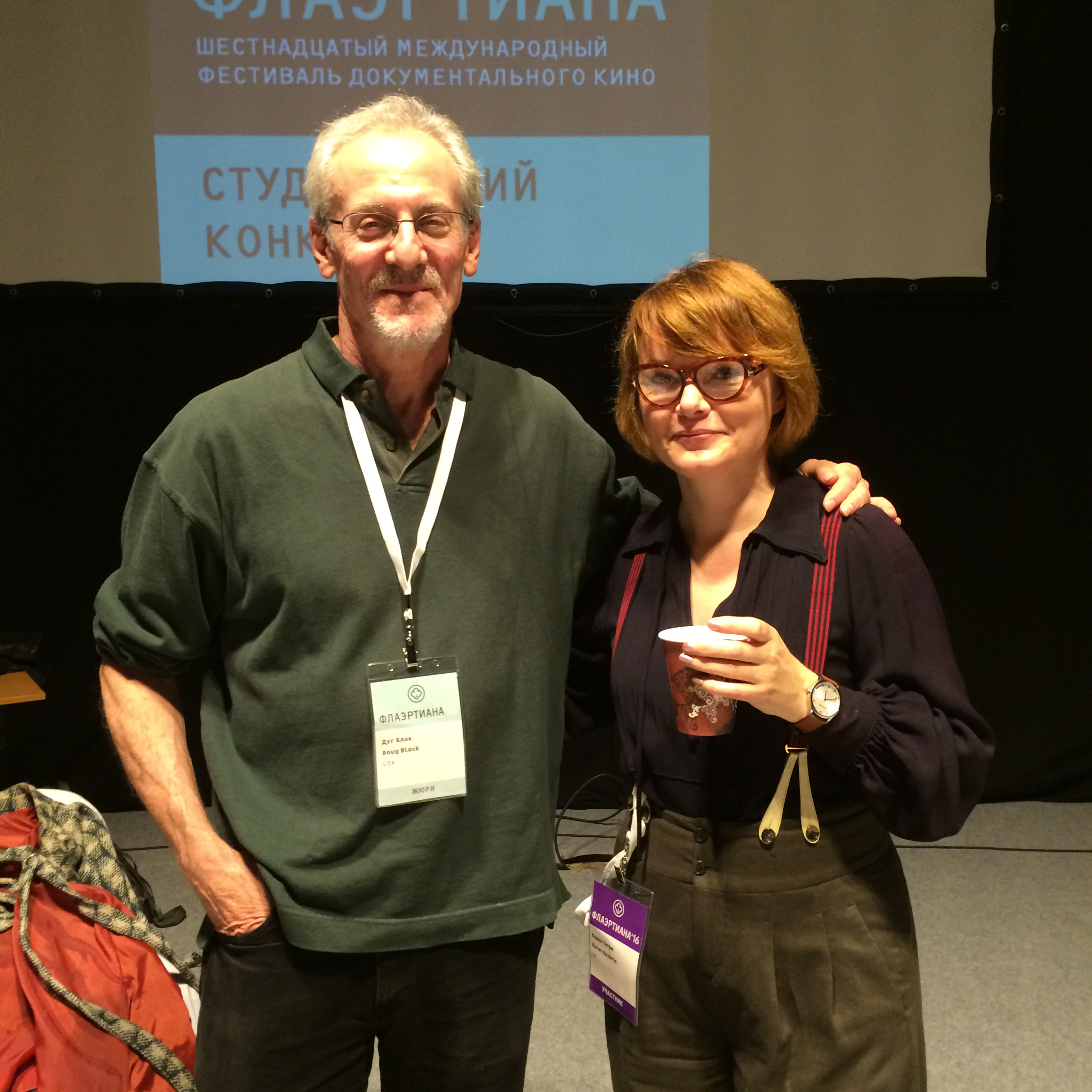
Other highlights of the festival included a birch twig flagellation / sauna, pickles by Anastasia's grandma, and the discovery of deep-fried sushi - as well as seeing some great films there including Tourism! by Tonci Gacina. Thanks to everyone on the Festival who welcomed the film and Karen so warmly!
In Hungary, the Budapest International Documentary Festival showed the film twice and also hosted Karen with great generosity. Again, we were In Competition (and trust us, it was stiff) and this time we won the Official Award of our category. It was also great to see A Family Affair by Tom Fassaert, a personal film that follows in our footsteps by also going to the Scottish Mental Health Arts & Film Festival soon.
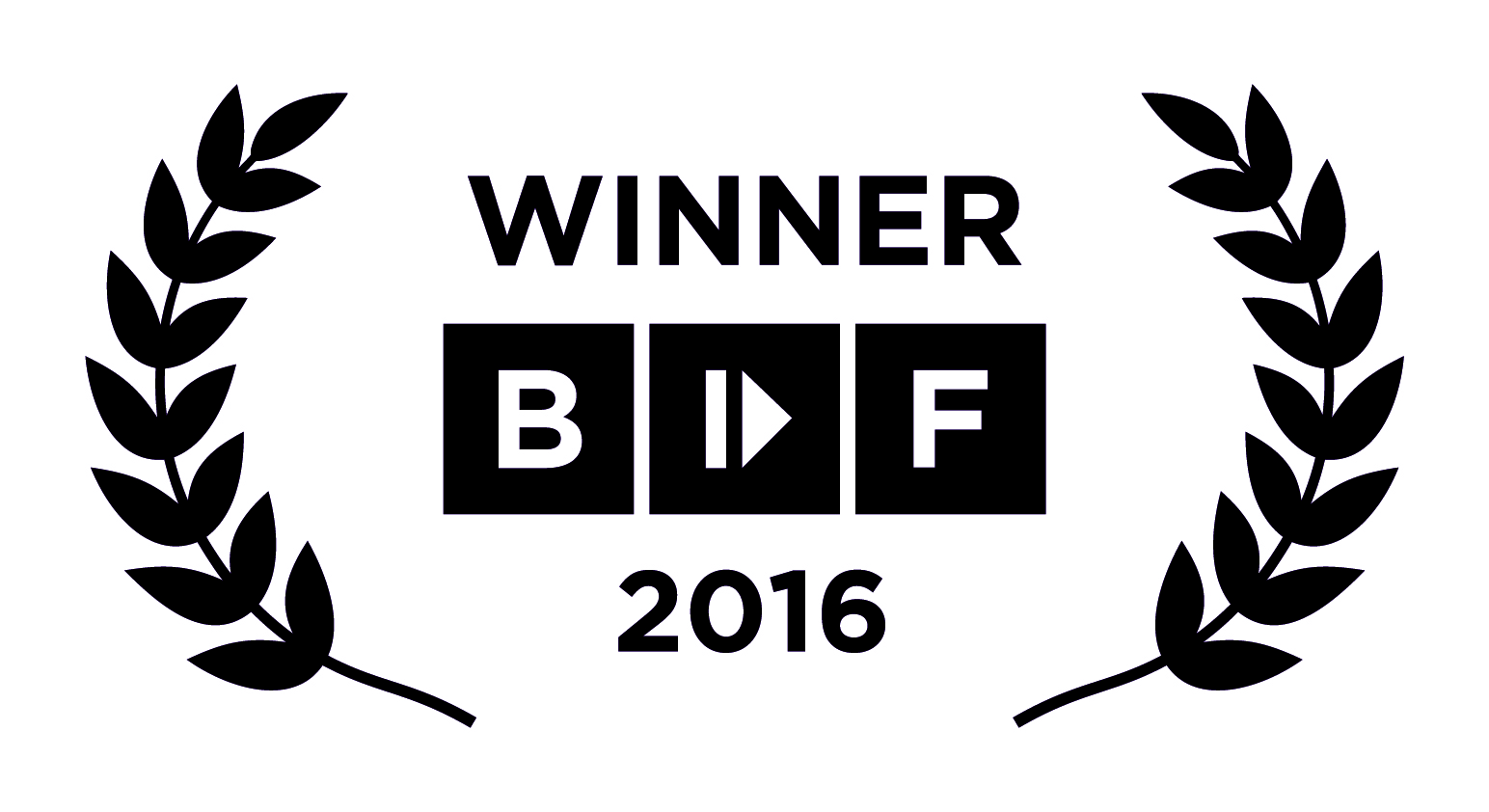
Posted 10th Oct in news
A Warm Welcome to Jen
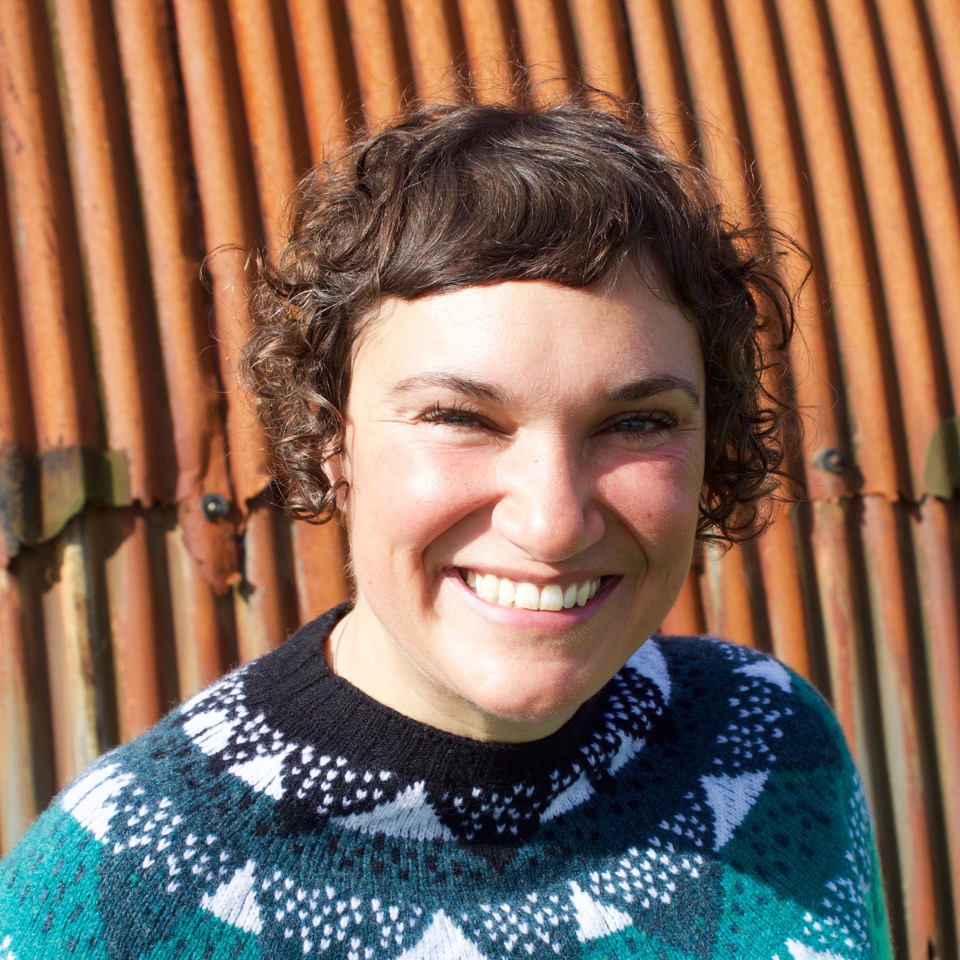
Here at our small The Closer We Get team, we have recently been joined by the talented Jen Skinner, whose impressive track record includes managing Hebden Bridge Picture House and developing the film education programme at the National Media Museum in Bradford.
As a freelancer, Jen also works to develop new film audiences of all ages with the Independent Cinema Office, the British Film Institute and Into Film.
What will Jen be doing?!
Well, she will be helping schedule in See Beyond Stroke screenings with groups affected by stroke, designing and collating evaluations for all the work we do, and working on the projects we recently received Bertha Britdoc Connect funds for - especially getting the film into Local Authority carer training.
Jen also manages to trump director Karen for remote living - she's based on the beautiful Scottish island of Tiree!
Posted 10th Oct in news


